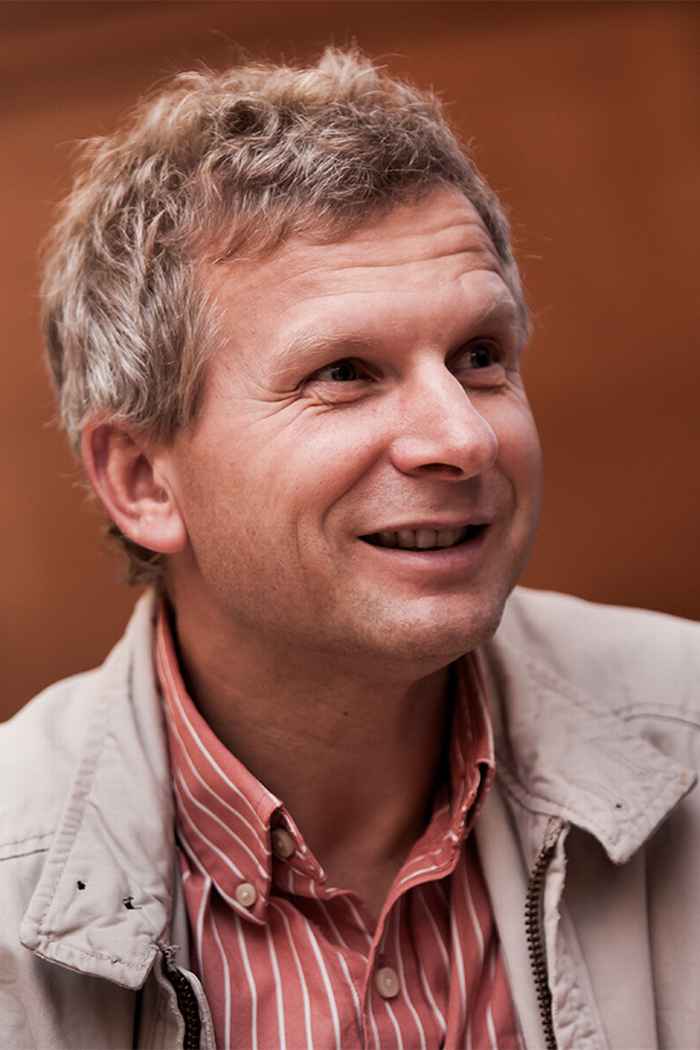Linking humanities and medicine
An interview with Michiel van den Brekel

(The following is a shortened version of an interview that appeared in the November 2012 issue of the Faculty of Humanities Newsletter)
Not only is Michiel van den Brekel professor at the Faculty of Humanities, he is also head of the department of Head and Neck Oncology and Surgery at the Netherlands Cancer Institute and a staff member in the department of Otorhinolaryngology at the Amsterdam Academic Medical Centre. Appointed as Professor of Oncology-Related Voice and Speech Disorders in 2011, Van den Brekel is excited about the prospect of helping to further the cooperative relationship between the humanities and medicine.
A fertile ground for cooperation
The idea that a university chair with the medical name ‘oncology related voice and speech disorders’ could form part of a humanities faculty seems counterintuitive, if not downright absurd. Indeed, thinking of medicine and humanities, one is easily excused for viewing these two disciplines as polar opposites, with little or nothing in common. And yet, on closer inspection, the links between them are as strong as they are beneficial; something to which Van den Brekel’s own chair attests. Said Van den Brekel: ‘Within the ACLC (Amsterdam Center for Language and Communication) there is substantial knowledge about speech, articulation and language, which can be practically applied within head and neck oncology. One of the goals of the research group is to ascertain whether patients can compensate for changes in voice and speech, and if yes, in what way? The ACLC plays a pivotal role in the linguistic side of the rehabilitation process. With the help of speech technology, our aim is to get a more comprehensive insight into the possible consequences an operation might have on a patient, so that we are able to provide better counselling about the various treatment options that are available.’
Linking the fields of humanities and medicine
One of Van den Brekel’s research fields is oncology related voice and speech disorders, which is a subject area in which the Faculty of Humanities provides unique expertise. Head and neck cancer is the sixth most common type of cancer in the Netherlands, with approximately 3000 patients treated for this disease annually. Van den Brekel: “Many patients with a tumor in their larynx and throat end up with impairments in speech and have difficulty swallowing partly as a result of the treatment. The research into these impairments can be done from both a medical and academic perspective.’
To illustrate the unique role that the humanities can play in oncology, Van den Brekel mentions a research project currently being carried out by one of the Faculty’s PhD candidates, whereby speech technology is used for exploring a patient’s comprehensibility and quality of voice after oncological treatment. As yet, patients suffering from voice and speech impairment after an operation usually visit a speech therapist, who then gives them exercises to do. In most cases both speech therapist and patient usually believe they’re able to detect improvements after a few months of exercise, which is by no means an objective assumption. In this sense speech therapy is still a relatively young science. It would therefore be advantageous to use voice recognition software that automatically measures such things as speech quality, comprehension and all sorts of aspects surrounding articulation. In using such a device, both patient and speech therapist would be better informed about the current stage of rehabilitation and what still needs to be done. This is a process in which linguistic knowledge and techniques can play a major role.
A stimulating environment
It is now almost a year since Van den Brekel started working at the Faculty of Humanities, which begs the question: does he feel like a humanities scholar? ‘Although I’m a physician above all, I do enjoy working at the Faculty. As a medical practitioner you’re mostly confined to a hospital. It’s therefore really refreshing to see people at this Faculty engaged in totally different things. My own chair forms a beneficial link between the Faculty of Humanities and the medical world. An example of this is the research project eHealth, in which patients and physicians converse via modern communication tools. A conversation between patient and physician occurs in a different way when the two of them don’t face each other in a surgery, but communicate via telephone, webcam or text messaging. A proper understanding of the linguistic and psycholinguistic aspects of these types of communication tools is an important prerequisite for the success of eHealth projects. I hope the coming years will see this cooperative relationship between the fields of humanities and medicine strengthening even further.’